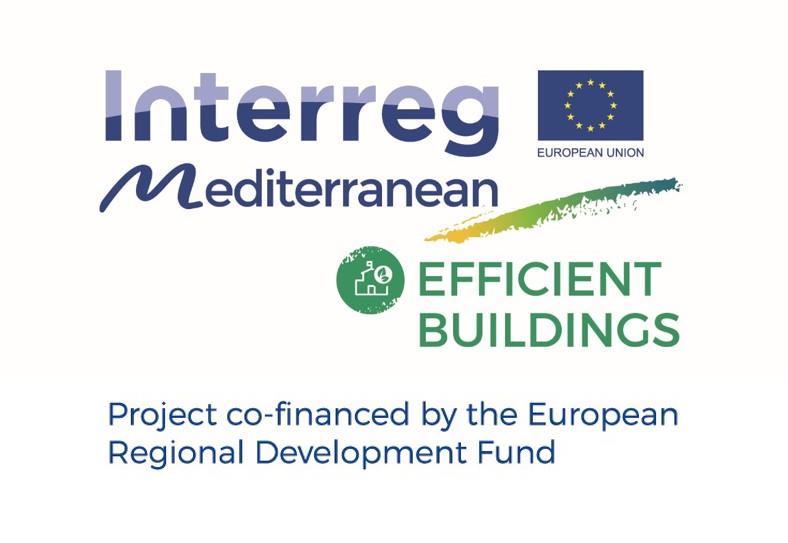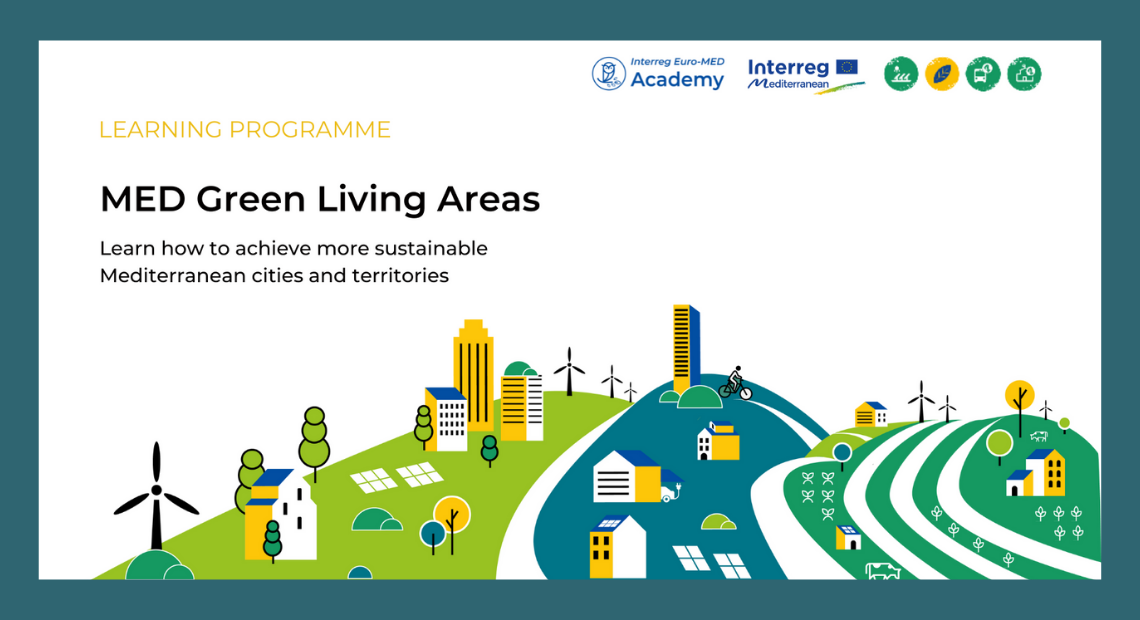IREC has participated in the organization of the 1st edition of the Interreg Euro-Med Academy, as part of the MED Green living areas program, and is available online now. Interreg MED thematic Communities are joining forces with PANORAMED to make the knowledge and skills developed by its transnational cooperation projects accessible and available to a wider audience with the ultimate ambition of shaping the “Next generation of Mediterranean leaders of inclusive and sustainable development”.
The aim of the academy is to provide the region with new competences and skills for leading the transition towards a more sustainable, inclusive and resilient model. It would be held online in an e-learning platform to deliver MOOC – Massive Open Online Courses – where participants can have access to the educational material and communicate with the academy team.
The available programs of the academy are:
- Promoting Innovation for Sustainability Transitions in the Mediterranean: an introduction, by PANORAMED – WP 10 Innovation
- Ecosystem-based Management and Marine Spatial Planning in the Mediterranean, by Biodiversity Protection
- Funding cooperation mechanisms and opportunities for a sustainable Mediterranean, by CPMR and NECSTouR
- Tourism for Sustainability, Inclusiveness and Resilience in the Mediterranean Region, by Sustainable Tourism, Urban Transports and Blue Growth
- Fostering and managing blue growth potential in the Mediterranean, by Blue Growth, Green Growth and Sustainable Tourism
- MED Green living areas: the challenges, by Renewable Energy, Urban Transports, Green Growth and Efficient Buildings
- Methods & Tools for stimulating innovation and policy making in the Social & Creative Mediterranean area by Social and Creative
MED Green living areas: the challenges
This learning program is structured in a series of Learning Units (LU) on circular economy, sustainable mobility, energy efficiency and clean energy transition. Each LU will deal with a dedicated challenge at a specific territorial scale: building, city, community. The participants will have 2 weeks to work in groups to develop a solution for the challenge. For that, they will be supported by live events, short videos and mentoring sessions. In the end, a virtual meetup with live interaction will wrap up the program and summarize the main outcomes.
Jordi Pascual and Emilio Hernando from the Thermal Energy and Building Performance group at IREC, are in charge of the development and coordination of challenge two in the building scale, named Achieve the best energy retrofit, and the main objective of this learning unit is to provide skills to analyse the energy behaviour of existing buildings and the weight of the factors involved, as well as to improve the technical knowledge to be able to prioritize the different intervention actions.
This learning unit starts on May the 23rd and ends at June the 6th. If you want to see more information or want to participate, please follow this link.
This project has received funding from the Interreg MED programme, co-financed by the European Regional Development Fund.




